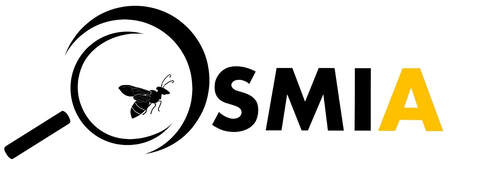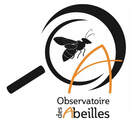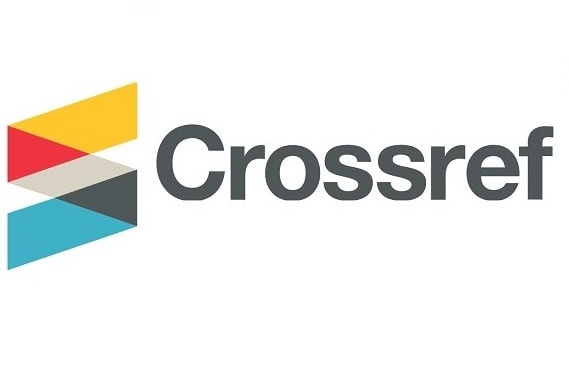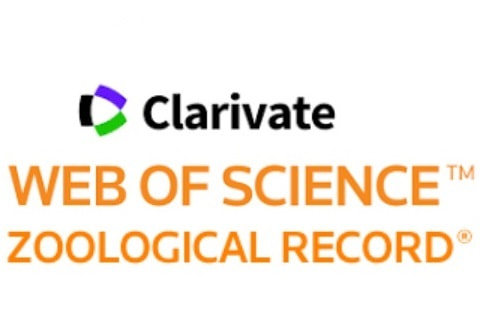Revue d'Hyménoptérologie
Journal of Hymenopterology
ISSN 2727-3806
ARTICLE |
Unexpected discovery of a near cryptic Dasypoda species in southern Spain (Hymenoptera: Melittidae)
|
Guillaume Ghisbain, Denis Michez, Paolo Rosa, Sónia Ferreira, Thomas J. Wood
|
Citation
Ghisbain, G., D. Michez, P. Rosa, S. Ferreira & T. J. Wood (2023). Unexpected discovery of a near cryptic Dasypoda species in southern Spain. Osmia, 11: 27–38. https://doi.org/10.47446/OSMIA11.6
Received 19 December 2022 - Accepted 22 July 2023 - Published (online) 25 July 2023
Indexation • Archivage - Archiving
Supplementary materials
Table S1. Sampling information on newly sequenced individuals [PDF] [Archived on Zenodo: https://doi.org/10.5281/zenodo.8172745]
Abstract
A new species of pantaloon bee, Dasypoda (Heterodasypoda) radchenkoi Ghisbain & Wood sp. nov., is described from both males and females collected in the limestone mountains of south-western Spain. COI barcodes show an important differentiation from D. morotei Quilis, 1928 of approximately 9.6% but the morphological divergence between the two species is extremely low. Dasypoda radchenkoi sp. nov. is the fifth species of Heterodasypoda found in Iberia, further confirming the peninsula as the center of diversity for the subgenus.
Keywords
Anthophila, Apoidea, taxonomy, Iberian Peninsula, endemic species, subgenus Heterodasypoda
Titre (Traduction)
Découverte inattendue d’une espèce cryptique de Dasypoda dans le sud de l'Espagne (Hymenoptera : Melittidae)
Résumé
Une nouvelle espèce de dasypode, Dasypoda (Heterodasypoda) radchenkoi Ghisbain & Wood sp. nov., est décrite à partir de mâles et femelles collectés dans les montagnes calcaires du sud-ouest de l’Espagne. Des codes-barres de la COI montrent une importante différenciation avec D. morotei Quilis, 1928 d’environ 9.6 % mais la divergence morphologique des deux espèces est très faible. Dasypoda radchenkoi sp. nov. est la cinquième espèce d’Heterodasypoda trouvée sur la Péninsule ibérique, confirmant que ce lieu est le centre de diversité du sous-genre.
Mots-clefs
Anthophila, Apoidea, taxonomie, Péninsule Ibérique, espèce endémique, sous-genre Heterodasypoda
References
Ghisbain, G., D. Michez, P. Rosa, S. Ferreira & T. J. Wood (2023). Unexpected discovery of a near cryptic Dasypoda species in southern Spain. Osmia, 11: 27–38. https://doi.org/10.47446/OSMIA11.6
Received 19 December 2022 - Accepted 22 July 2023 - Published (online) 25 July 2023
Indexation • Archivage - Archiving
- DOI: https://doi.org/10.47446/OSMIA11.6
- Zoobank (ICZN): https://zoobank.org/4B9F0E1C-BCA6-4934-97FF-81EB47B8FE55
- HAL (CNRS-INRAE): https://hal.science/hal-04169992
- Zenodo (CERN): https://zenodo.org/record/8180467
Supplementary materials
Table S1. Sampling information on newly sequenced individuals [PDF] [Archived on Zenodo: https://doi.org/10.5281/zenodo.8172745]
Abstract
A new species of pantaloon bee, Dasypoda (Heterodasypoda) radchenkoi Ghisbain & Wood sp. nov., is described from both males and females collected in the limestone mountains of south-western Spain. COI barcodes show an important differentiation from D. morotei Quilis, 1928 of approximately 9.6% but the morphological divergence between the two species is extremely low. Dasypoda radchenkoi sp. nov. is the fifth species of Heterodasypoda found in Iberia, further confirming the peninsula as the center of diversity for the subgenus.
Keywords
Anthophila, Apoidea, taxonomy, Iberian Peninsula, endemic species, subgenus Heterodasypoda
Titre (Traduction)
Découverte inattendue d’une espèce cryptique de Dasypoda dans le sud de l'Espagne (Hymenoptera : Melittidae)
Résumé
Une nouvelle espèce de dasypode, Dasypoda (Heterodasypoda) radchenkoi Ghisbain & Wood sp. nov., est décrite à partir de mâles et femelles collectés dans les montagnes calcaires du sud-ouest de l’Espagne. Des codes-barres de la COI montrent une importante différenciation avec D. morotei Quilis, 1928 d’environ 9.6 % mais la divergence morphologique des deux espèces est très faible. Dasypoda radchenkoi sp. nov. est la cinquième espèce d’Heterodasypoda trouvée sur la Péninsule ibérique, confirmant que ce lieu est le centre de diversité du sous-genre.
Mots-clefs
Anthophila, Apoidea, taxonomie, Péninsule Ibérique, espèce endémique, sous-genre Heterodasypoda
References
- Bartomeus, I., J. B. Lanuza, T. J. Wood, L. Carvalheiro, M. P. Molina, M. A. Collado, L. O. Aguado-Martín, D. Alomar, D., M. Álvarez-Fidalgo, M. Arista, B. Arroyo-Correa, J. D. Asís, C. Azpiazu, L. Baños-Picón, P. Beja, M. Boieiro, P. A. V. Borges, G. González Bornay, R. Carvalho, R. Casimiro-Soriguer, S. Castro, J. Costa, I. Cross, P. De la Rúa, L. M. de Pablos, V. de Paz, J. Díaz-Calafat, V. Ferrero, H. Gaspar, G. Ghisbain, J. S. Gómez, C. Gómez-Martínez, M. A. González-Estévez, R. Heleno, J. M. Herrera, J. I. Hormaza, J. M. Iriondo, M. Kuhlmann, P. Laiolo, C. Lara-Romero, A. Lázaro, J. López-Angulo, F. A. López-Núñez, J. Loureiro, A. Magrach, V. Martínez-López, C. Martínez-Núñez, D. Michez, M. Miñarro, A. Montero-Castaño, B. Moreira, J. Morente-López, N. Noval Fonseca, A. Núñez Carbajal, J. Obeso, C. Ornosa, F. J. Ortiz-Sánchez, D. Pareja Bonilla, S. Patiny, A. Penado, A. Picanço, E. F. Ploquin, P. Rasmont, C. Rego, P. J. Rey, E. Ribas-Marquès, S. P. M. Roberts, M. Rodriguez, N. Rosas-Ramos, A. M. Sánchez, S. Santamaría, E. Tobajas, J. Tormos, F. Torres, A. Trillo, J. Valverde, M. Vilà & E. Viñuela (2022). Base de datos de abejas ibéricas. Ecosistemas, 31(3): 2380, 7pp. https://doi.org/10.7818/ECOS.2380
- Bleidorn, C. & K. Henze (2021). A new primer pair for barcoding of bees (Hymenoptera: Anthophila) without amplifying the orthologous coxA gene of Wolbachia bacteria. BMC Research Notes, 14(1): 427. https://doi.org/10.1186/s13104-021-05845-9
- Duchenne, F., E. Thébault, D. Michez, M. Elias, M. Drake, M. Persson, J. S. Rousseau-Piot, M. Pollet, P. Vanormelingen & C. Fontaine (2020). Phenological shifts alter the seasonal structure of pollinator assemblages in Europe. Nature Ecology and Evolution 4(1): 115–121. https://doi.org/10.1038/s41559-019-1062-4
- Elbrecht, V. & F. Leese (2017). Validation and development of COI metabarcoding primers for freshwater macroinvertebrate bioassessment. Frontiers in Environmental Science, 5: 1–11. https://doi.org/10.3389/fenvs.2017.00011
- Folmer, O., M. Black, W. Hoeh, R. Lutz & R. Vrijenhoek (1994). DNA primers for amplification of mitochondrial cytochrome c oxidase subunit I from diverse metazoan invertebrates. Molecular Marine Biology and Biotechnology, 3(5): 294–299. https://www.mbari.org/wp-content/uploads/2016/01/Folmer_94MMBB.pdf [accessed 15 December 2022]
- Gérard, M., M. Vanderplanck, T. J. Wood, & D. Michez (2020). Global warming and plant-pollinator mismatches. Emerging Topics in Life Sciences, 4(1): 77–86. https://doi.org/10.1042/ETLS20190139
- Ghisbain, G., D. Michez, L. Marshall, P. Rasmont & S. Dellicour (2020). Wildlife conservation strategies should incorporate both taxon identity and geographical context – further evidence with bumblebees. Diversity and Distributions, 26(12): 1741–1751. https://doi.org/10.1111/ddi.13155
- Ghisbain, G., B. Martinet, T. J. Wood, K. Przybyla, D. Cejas, M. Gérard, P. Rasmont, A. Monfared, I. Valterová & D. Michez (2021a). A worthy conservation target? Revising the status of the rarest bumblebee of Europe. Insect Conservation and Diversity, 14(5): 661–674. https://doi.org/10.1111/icad.12500
- Ghisbain, G., V.G. Radchenko, D. Cejas, F.P. Molina & D. Michez (2021b). Assessment and conservation status of an endemic bee in a diversity hotspot (Hymenoptera, Melittidae, Dasypoda). Journal of Hymenoptera Research, 81: 127–142. https://doi.org/10.3897/jhr.81.60811
- Grace A. (2010). Introductory biogeography to bees of the Eastern Mediterranean and Near East. Bexhill Museum, Bexhill (UK), 284 pp. https://dnu7gk7p9afoo.cloudfront.net/Files/grace2010.pdf [accessed 15 December 2022]
- Ivanova, N.V., J. R. Dewaard & P. D. N. Hebert (2006). An inexpensive, automation-friendly protocol for recovering high-quality DNA. Molecular Ecology Notes, 6: 998–1002. https://doi.org/10.1111/j.1471-8286.2006.01428.x
- Kuhlmann M. & J. Smit (2018). Description of a new bee species from Spain, Colletes jansmiti Kuhlmann nov.sp., with a key to the females of the C. albomaculatus-group (Hymenoptera: Colletidae). Linzer Biologische Beiträge, 50(2): 1249–1254. https://www.zobodat.at/pdf/LBB_0050_2_1249-1254.pdf [accessed 15 December 2022]
- Michener, C. D. (2007). The bees of the world. 2nd edition. The Johns Hopkins University Press, Baltimore (MA, USA), xvi + [i] + 953 pp. + 20 pls.
- Michez, D., S. Patiny & C. Gaspar (2003). Dasypoda albimana Pérez, 1905 (Hymenoptera, Apoidea, Melittidae), espèce nouvelle pour la France et le Maroc. Bulletin de la Société entomologique de France, 108(1): 61–64. https://doi.org/10.3406/bsef.2003.16921
- Michez, D., M. Terzo & P. Rasmont (2004a). Révision des espèces ouest-paléarctiques du genre Dasypoda Latreille 1802 (Hymenoptera, Apoidea, Melittidae). Linzer biologische Beiträge, 36(2): 847–900. https://www.zobodat.at/pdf/LBB_0036_2_0847-0900.pdf [accessed 15 December 2022]
- Michez D., M. Terzo & P. Rasmont (2004b). Phylogénie, biogéographie et choix floraux des abeilles oligolectiques du genre Dasypoda Latreille 1802 (Hymenoptera: Apoidea: Melittidae). Annales de la Société Entomologique de France (N.S.), 40(3–4): 421–435. https://doi.org/10.1080/00379271.2004.10697431
- Michez D., S. Patiny, P. Rasmont, K. Timmermann & N. J. Vereecken (2008). Phylogeny and host-plant evolution in Melittidae s.l. (Hymenoptera: Apoidea). Apidologie, 39(1): 146–162. https://doi.org/10.1051/apido:2007048
- Michez, D., S. Patiny & B. N. Danforth (2009). Phylogeny of the bee family Melittidae (Hymenoptera: Anthophila) based on combined molecular and morphological data. Systematic Entomology, 34(3): 574–597. https://doi.org/10.1111/j.1365-3113.2009.00479.x
- Michez, D., P. Rasmont, M. Terzo, & N.J. Vereecken (2019). Hymenoptera of Europe. Volume 1. Bees of Europe. NAP, Verrières-le-Buisson (France), 548 pp.
- Myers, N., R. A. Mittermeier, C. G. Mittermeier, G. A. da Fonseca, & J. Kent (2000). Biodiversity hotspots for conservation priorities. Nature, 403(6772): 853–858. https://doi.org/10.1038/35002501
- Nieto, A., S. P. M. Roberts, J. Kemp, P. Rasmont, M. Kuhlmann, M. García Criado, J.C. Biesmeijer, P. Bogusch, H. H. Dathe, P. de la Rúa, T. de Meulemeester, M. Dehon, A. Dewulf, F. J. Ortiz- Sánchez, P. Lhomme, A. Pauly, S. G. Potts, C. Praz, M. Quaranta, V. G. Radchenko, E. Scheuchl, J. Smit, J. Straka, M. Terzo, B. Tomozii, J. Window, & D. Michez, (2014). European Red List of Bees. Publication Office of the European Union, Luxembourg, 98 pp. https://doi.org/10.2779/77003
- Ornosa, C. & F. J. Ortiz-Sánchez (1998). Contribución al conocimiento de los melítidos ibéricos (Hymenoptera, Apidea, Melittidae). Boletín de la Asociación española de Entomología, 22(3–4): 181–202. https://bba.bioucm.es/cont/docs/431.pdf [accessed 15 December 2022]
- Orr, M. C., A. C. Hughes, D. Chesters, J. Pickering, C. D. Zhu, & J. S. Ascher (2021). Global patterns and drivers of bee distribution. Current Biology, 31(3): 451–458. https://doi.org/10.1016/j.cub.2020.10.053
- Ortiz-Sánchez, F. J. (2011). Lista actualizada de las especies de abejas de España (Hymenoptera: Apoidea: Apiformes). Boletín de la Sociedad Entomológica Aragonesa, 49: 265–281. https://www.researchgate.net/publication/235446736_Lista_actualizada_de_las_especies_de_abejas_de_Espana_Hymenoptera_Apoidea_Apiformes [accessed 15 December 2022]
- Ortiz-Sánchez, F. J. (2020). Checklist de Fauna Ibérica. Serie Anthophila (Insecta: Hymenoptera: Apoidea) en la península ibérica e islas Baleares (edición 2020). In: M. A. Ramos, M. Sánchez Ruiz (ed.) Documentos Fauna Ibérica, 14. Museo Nacional de Ciencias Naturales, CSIC, Madrid, 83 pp. https://www.fauna-iberica.mncn.csic.es/publicaciones/dfi/dfi-0014.pdf [accessed 15 December 2022]
- Quilis, M. (1928). Los Ápidos de España. Estudio monográfico de las Dasypoda Latr. Eos: revista española de entomologia, 4(2): 173–241. http://hdl.handle.net/10261/140778
- Radchenko, V. G. (2016). A new widespread European bee species of the genus Dasypoda Latreille (Hymenoptera, Apoidea). Zootaxa, 4184(3): 491–504. http:// doi.org/10.11646/zootaxa.4184.3.4
- Radchenko, V. G. (2017). A new bee species of the genus Dasypoda Latreille (Hymenoptera, Apoidea) from Portugal with comparative remarks on the subgenus Heterodasypoda Michez. Zootaxa, 4350(1): 164–176. https://doi.org/10.11646/zootaxa.4350.1.10
- Radchenko, V. G., G. Ghisbain & D. Michez (2019). Redescription of three rare species of Dasypoda bees with first description of D. iberica and D. tibialis females (Hymenoptera, Apoidea, Melittidae). Zootaxa, 4700(3): 326–344. https://doi.org/10.11646/zootaxa.4700.3.2
- Radchenko, V. G., B. Tomozii, G. Ghisbain & D. Michez (2020). New data on the morphology and distribution of the cryptic species Dasypoda morawitzi Radchenko, 2016 (Hymenoptera: Melittidae) with corrections to the diagnosis of Dasypoda s. str.. Annales de la Société Entomologique de France (N.S.), 56(6) : 455–470. https://doi.org/10.1080/00379271.2020.1841570
- Rasmont, P., J. Devalez, A. Pauly, D. Michez & V. G. Radchenko (2017). Addition to the checklist of IUCN European wild bees (Hymenoptera: Apoidea). Annales de la Société entomologique de France (N.S.), 53(1): 17–32.
- Rasmont, P., G. Ghisbain & M. Terzo (2021). Bumblebees of Europe and neighbouring regions. Editions NAP, Verrières-le-Buisson (France), 632 pp.
- Shokralla, S., T. M. Porter, J. F. Gibson, R. Dobosz, D. H. Janzen, W. Hallwachs, G. B. Golding & M. Hajibabaei (2015). Massively parallel multiplex DNA sequencing for specimen identification using an Illumina MiSeq platform. Scientific Reports, 5: 9687. https://doi.org/10.1038/srep09687
- Wood, T. J. & I. Cross (2017). Camptopoeum (Camptopoeum) baldocki spec. nov., a new panurgine bee species from Portugal and a description of the male of Flavipanurgus fuzetus Patiny (Andrenidae: Panurginae). Zootaxa, 4254(2): 285–293. https://doi.org/10.11646/zootaxa.4254.2.9
- Wood, T. J., I. Cross & D. Baldock (2020). Updates to the bee fauna of Portugal with the description of three new Iberian Andrena species (Hymenoptera: Apoidea: Anthophila). Zootaxa, 4790(2): 201–228. https://doi.org/10.11646/zootaxa.4790.2.1
- Wood, T. J., G. Ghisbain, D. Michez, & C. J. Praz (2021). Revisions to the faunas of Andrena of the Iberian Peninsula and Morocco with the descriptions of four new species (Hymenoptera: Andrenidae). European Journal of Taxonomy, 758(1): 147–193. https://doi.org/10.5852/ejt.2021.758.1431
- Wood, T. J., S. Patiny & S. Bossert (2022). An unexpected new genus of panurgine bees (Hymenoptera, Andrenidae) from Europe discovered after phylogenomic analysis. Journal of Hymenoptera Research, 89: 183–210. https://doi.org/10.3897/jhr.89.72083










